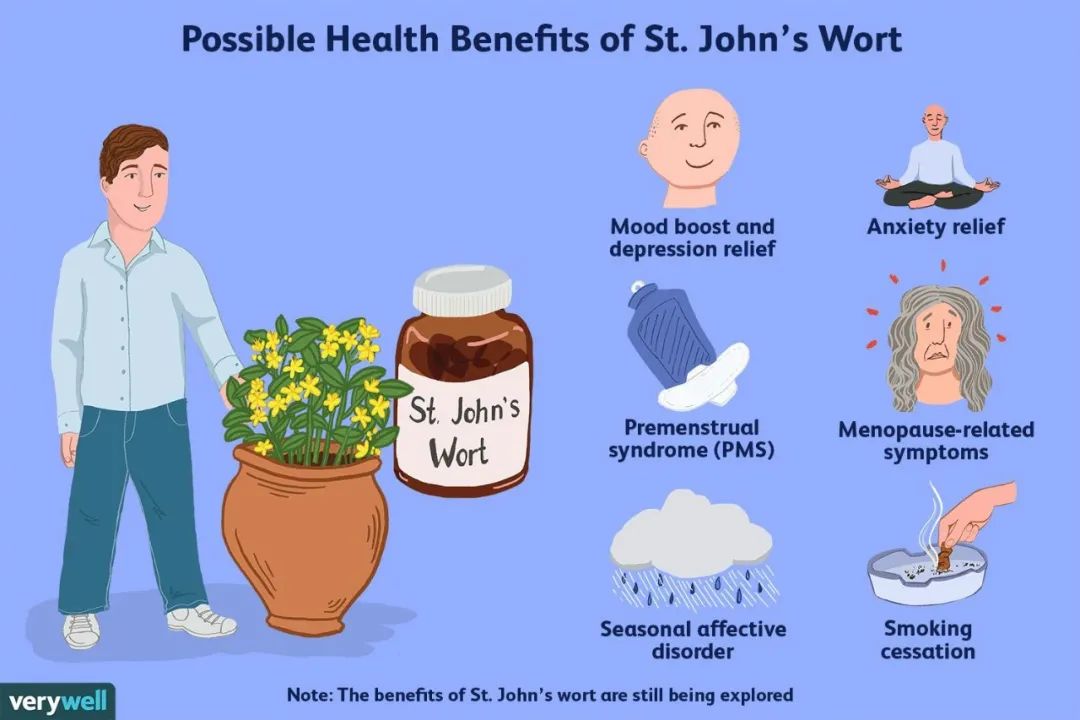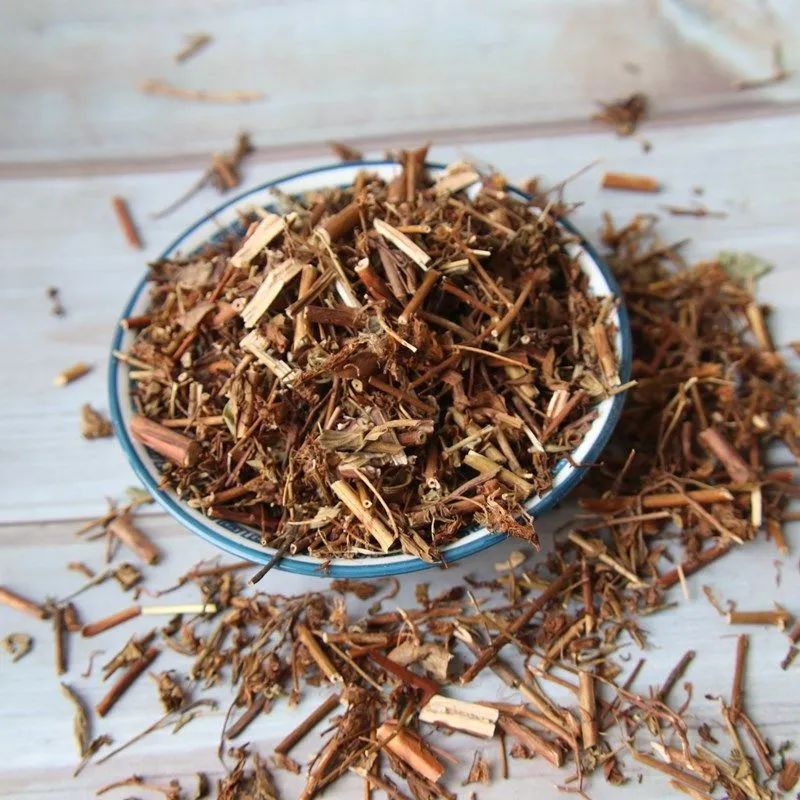Can St John’s Wort Extract Reduce Depression?
St. John’s wort(Hypericum perforatum) is a wild perennial plant that grows in Europe, North Africa and Western Asia and is now found throughout North America. Its name comes from the fact that the plant usually blooms around June 24, the date of the birth of St. John the Baptist in the Bible, and the plant contains a red liquid, which was believed to be the blood of St. John the Baptist during his martyrdom. People in medieval times believed that St. John’s wort had healing powers and exorcized evil spirits. It has been used for centuries to treat nerve pain, wounds, and mental health disorders.
In Ancient Greece this plant was used as a diuretic and to treat neuralgia, since the Middle Ages as a traditional European herbal medicine mainly used for anti-depression, insomnia, gastritis, etc., is the most commonly used herbal preparation in Europe. Steven Bratman is the author of Nature Pharmacy. According to him, the medical value of St. John’s Wort is very close to that of many prescription drugs, with an effectiveness rate of nearly 55%. Bratman also points out that there is evidence that it is at least as effective as fluoxetine (Prozac) and Sertraline (Zoloft). In Germany, St. John’s Wort became an official antidepressant in 1998 and is covered by health insurance, and in fact, it is the best-selling antidepressant in Germany and even Europe. Today, St. John’s wort extract is being explored as a more natural alternative or complement to antidepressant medication for cases of mild to moderate depression. But can it really reduce depression? Let’s explore this amazing plant in this article.
What is St. John’s Wort Extract?
The medicinal use of hypericum perforatum has been known for 2,000 years. This roadside weed contains a variety of active compounds, including 10% tannin, hypericin and hyperforin, pseudohypericin, hyperesinⅠ, Ⅱ, imanin and other active ingredients. St. John’s wort extracts are typically standardized to provide a consistent concentration of hypericin and/or hyperforin.
How Might St. John’s Wort Extract Work for Depression?
Anti-depression
The earliest research began in the early 1980s, when attention to hypericum perforatum focused on its treatment of mild to moderate depression. Anxiety, apathy, depression, insomnia, lethargy (excessive sleep), nervousness, irritability, feelings of inferiority, and menopausal neurasthenia may all be alleviated by St. John’s wort extract. It may increase the levels of certain nerve impulse transducers in the brain, which are necessary to maintain emotional stability and state. Researchers hypothesize that because compounds in St. John’s wort extract can increase levels of feel-good neurotransmitters like serotonin, they may lift mood and provide an antidepressant effect for people with depression. Other mechanisms, including the release of melatonin (a hormone associated with sleep) and interaction with light, are thought to be possible effects of hypericum perforatum, and without all the side effects of general antidepressants. However, the mechanisms are complex and not fully understood. A 2009 review published in the British Medical Journal analyzed 29 trials and found it had similar efficacy to antidepressant medication with fewer side effects.
Reduce alcohol cravings
Hypericum perforatum substantially reduces alcohol cravings and intake. It is now hypothesized that alcoholism may be a form of self-preservation, and that, by suppressing depressive symptoms, hypericum perforatum may reduce the sensory need for alcohol.
Sedation and tranquilization
The main active ingredients in St. John’s wort extract are including hypericin and hyperforin which may influence neurotransmitters like serotonin, dopamine and noradrenaline in the brain. This could help elevate mood. which can enter the brain through the blood-brain barrier and achieve the effect of relieving mental tension and stabilizing mood through a series of reactions.
Antibacterial and anti-inflammatory
The total alkaloids in St. John’s wort extract have antibacterial effects, especially against infections caused by gram-positive bacteria. Especially for patients before and after surgery, St. John’s wort is an effective antibacterial and anti-inflammatory and promotes wound healing.
Improve blood circulation
St. John’s wort extract has the properties of improving blood circulation, which is helpful for rheumatoid, arthritis, bruising, varicose veins, hemorrhoids, bruises, sprains, osteoneurogia and other symptoms, and is helpful for the recovery of cartilage tissue.
Relieve menopausal symptoms
In clinical application, Hypericum perforatum extract can not only be used to treat mild to moderate depressive disorders but also can be used to treat concomitant depressive disorders, such as women’s special physiological stages (menstrual period, perinatal period, perimenopause, etc.)
The main clinical manifestations associated with menopause include: Vasomotor symptoms, genito-urinary symptoms, sleep disorders, and mood changes, the most common of which is hot flashes (associated with vasomotor dysregulation), shown in a double-blind controlled study (8 weeks, 100 women with an average age of 50.4 years), compared to placebo, St. John’s wort extract is more effective than placebo for hot flashes.
Side Effects and Precaution
While more research is still needed, St. John’s wort extract looks to be a potentially helpful alternative treatment for milder depression cases under medical guidance. St John’s wort seems to have less effect on severe depression. It may also take 4-6 weeks to start working, unlike antidepressant medication. However, many individual studies show mixed results. Overall, the evidence is promising but inconclusive.
St John’s wort can interact with many medications, including antidepressants, birth control pills and blood thinners. It may also altering their breakdown and increase photosensitivity. Potential side effects like anxiety, insomnia and gastrointestinal issues may also occur. Work closely with a doctor if taking St. John’s wort for depression.
Sources: https://pubmed.ncbi.nlm.nih.gov/11709276/





